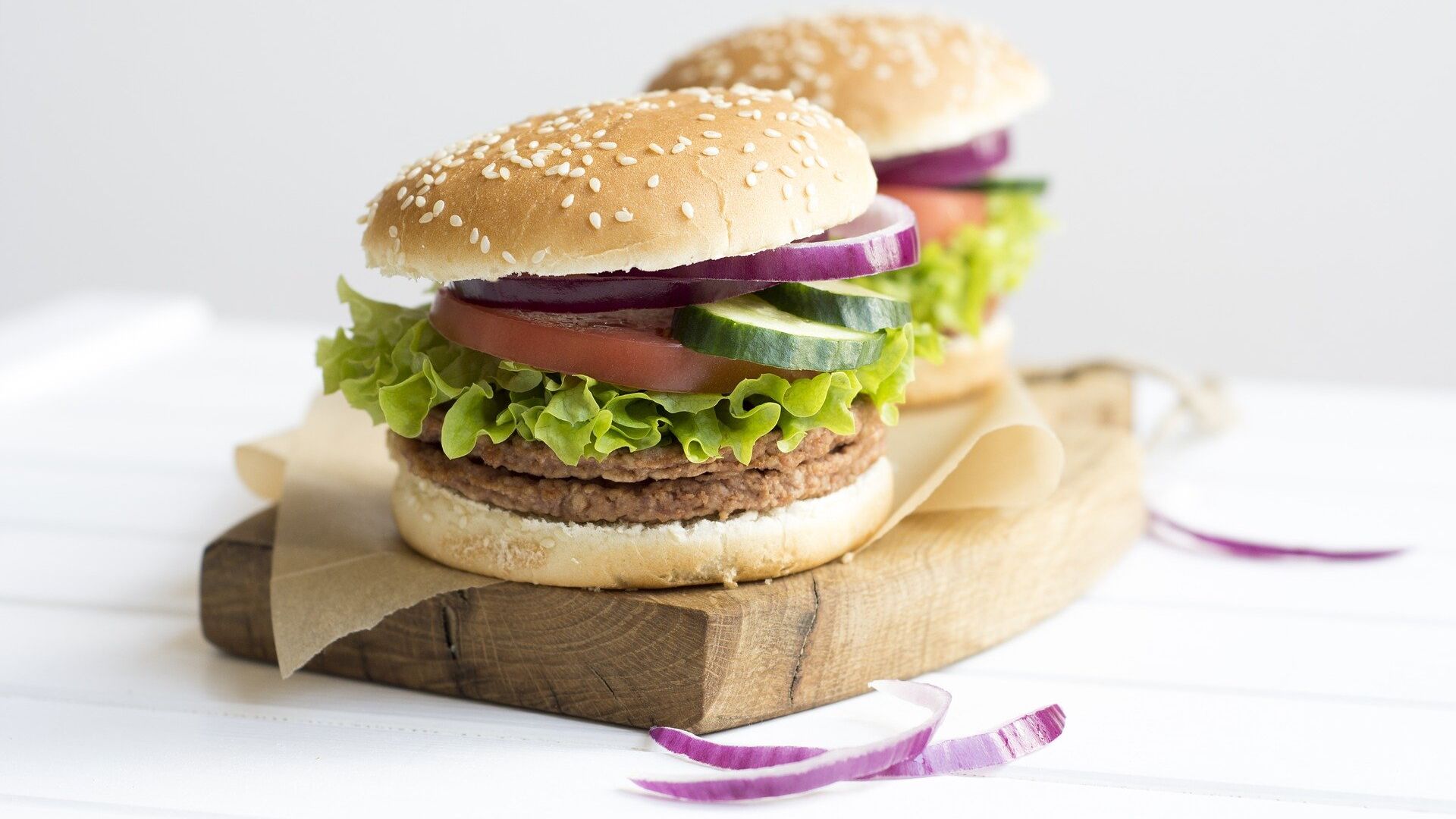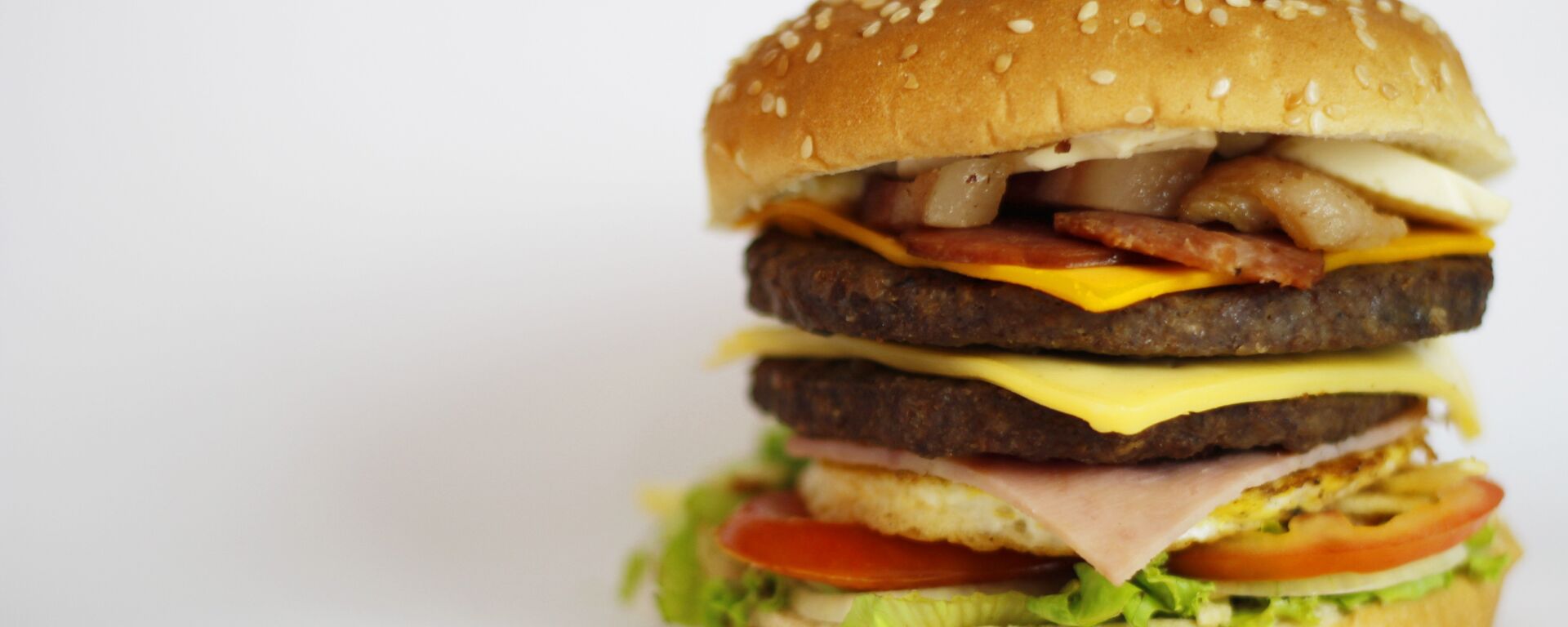https://sputnikglobe.com/20230609/hit-the-hay-junk-food-leads-to-worse-sleep-swedish-study-finds-1111021088.html
Hit the Hay: Junk Food Leads to Worse Sleep, Swedish Study Finds
Hit the Hay: Junk Food Leads to Worse Sleep, Swedish Study Finds
Sputnik International
In the trial, the two eating options contained the same number of calories, but the unhealthier diet contained higher levels of sugar, saturated fat and processed food.
2023-06-09T06:17+0000
2023-06-09T06:17+0000
2023-06-09T06:17+0000
beyond politics
science & tech
uppsala
sleep
sleeping
scientific research
research
sweden
news
https://cdn1.img.sputnikglobe.com/img/105688/33/1056883362_0:100:1920:1180_1920x0_80_0_0_a4cb2ebd6f94374eb1338112febe5ffe.jpg
Exposure to a more unhealthy diet impacts sleep microstructure, a research crew from Uppsala University, Sweden, found after investigating the connection between eating habits and sleep.While it has been assumed before that deep sleep seems to be influenced by the food consumed, no study has previously directly examined how sleep looks after a healthy diet compared with so-called junk food.According to Jonathan Cedernaes, a doctor and associate professor in medical cell biology at Uppsala University, the crew was particularly interested in investigating the quality of deep sleep, that is measuring how restorative the sleep is.How the Trial Was Carried OutDuring the course of the trial, healthy participants were randomly assigned to maintain a high-fat/high-sugar (HFHS) diet and a more healthy diet low on both fat and sugar.Each study session involved several days of monitoring in a sleep laboratory. A total of 15 healthy normal-weight young men participated. The participants were screened, among other things, for their sleep habits, which would be normal and within the recommended range, that is, seven to nine hours of sleep per night.The two eating options contained the same number of calories, but the calorie amounts were calculated individually. The more unhealthy diet contained, among other things, higher levels of sugar and saturated fat, as well as more processed food. Each diet was maintained for a week, while the participants' sleep, activity and meal schedules were checked individually. Following each diet, in-lab sleep was recorded using polysomnography during a full night of sleep and during recovery sleep after extended wakefulness. Sleep duration, macrostructure, and microstructure (oscillatory pattern and slow waves) were investigated using machine learning-based algorithms.To further validate the findings, participants subsequently underwent an extended period of wakefulness, during which they were on an identical diet. This enabled the researchers to record whether the diet-dependent changes in sleep parameters also carried over into recovery sleep.The Future of SleepAs of now, the researchers are currently unsure how long the effects on sleep of the unhealthy diet can persist. The study neither investigated whether and how the changed sleep quality affects functions regulated by deep sleep, such as memory, nor found out which exact substances in the more harmful diet resulted in more superficial deep sleep. According to the crew, further studies need to be done to follow up on the results, for instance among different age groups.
https://sputnikglobe.com/20230310/doubling-in-swedens-obesity-linked-to-stress-mental-health-issues-1108244317.html
uppsala
sweden
Sputnik International
feedback@sputniknews.com
+74956456601
MIA „Rossiya Segodnya“
2023
News
en_EN
Sputnik International
feedback@sputniknews.com
+74956456601
MIA „Rossiya Segodnya“
Sputnik International
feedback@sputniknews.com
+74956456601
MIA „Rossiya Segodnya“
deep sleep, processed food, junk food, bad sleep, sleep patterns, healthy diet
deep sleep, processed food, junk food, bad sleep, sleep patterns, healthy diet
Hit the Hay: Junk Food Leads to Worse Sleep, Swedish Study Finds
A pioneering study has established a link between high-fat, high-sugar food and quality of sleep, warranting further research on what exact substances result in a more superficial sleep.
Exposure to a more unhealthy diet impacts sleep microstructure, a research crew from Uppsala University, Sweden, found after investigating the connection between eating habits and sleep.
While it has been assumed before that deep sleep seems to be influenced by the food consumed, no study has previously directly examined how sleep looks after a healthy diet compared with so-called junk food.
According to Jonathan Cedernaes, a doctor and associate professor in medical cell biology at Uppsala University, the crew was particularly interested in investigating the quality of deep sleep, that is measuring how restorative the sleep is.
"Similar changes in sleep can be seen in aging, as well as in insomnia. In such conditions, hypothetically speaking, from a sleep perspective, a careful diet may be advisable," Cedernaes said in a statement.
How the Trial Was Carried Out
During the course of the trial, healthy participants were randomly assigned to maintain a high-fat/high-sugar (HFHS) diet and a
more healthy diet low on both fat and sugar.
Each study session involved several days of monitoring in a sleep laboratory. A total of 15 healthy normal-weight young men participated. The participants were screened, among other things, for their
sleep habits, which would be normal and within the recommended range, that is, seven to nine hours of sleep per night.
The two eating options contained the same number of calories, but the calorie amounts were calculated individually. The more unhealthy diet contained, among other things, higher levels of sugar and saturated fat, as well as more processed food. Each diet was maintained for a week, while the participants' sleep, activity and meal schedules were checked individually.
Following each diet, in-lab
sleep was recorded using polysomnography during a full night of sleep and during recovery sleep after extended wakefulness. Sleep duration, macrostructure, and microstructure (oscillatory pattern and slow waves) were investigated using machine learning-based algorithms.
To further validate the findings, participants subsequently underwent an extended period of wakefulness, during which they were on an identical diet. This enabled the researchers to record whether the diet-dependent changes in sleep parameters also carried over into recovery sleep.
As of now, the researchers are currently unsure how long the effects on sleep of the unhealthy diet can persist. The study neither investigated whether and how the
changed sleep quality affects functions regulated by deep sleep, such as memory, nor found out which exact substances in the more harmful diet resulted in more superficial deep sleep. According to the crew, further studies need to be done to follow up on the results, for instance among different age groups.



